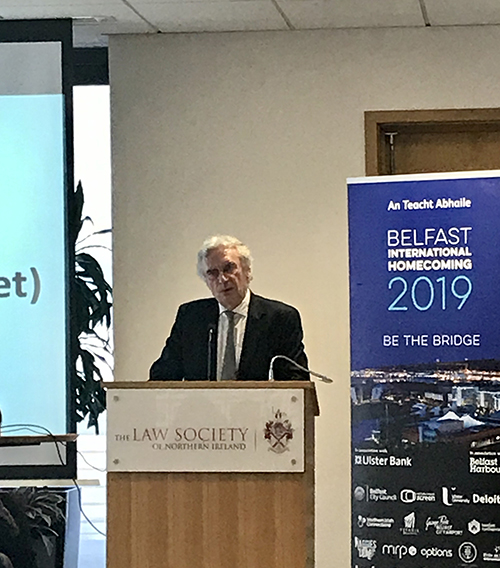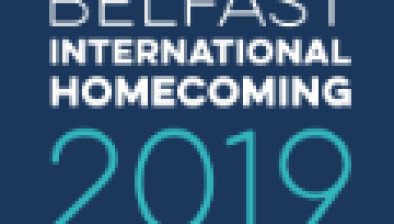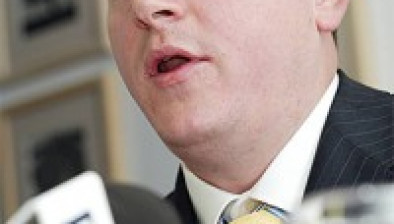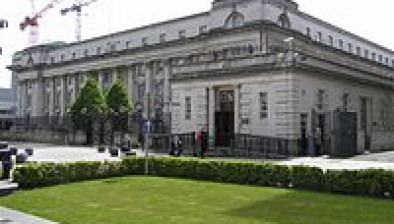NI: Lawyers can enable journalists under attack to ‘fight back and to win’

Barry MacDonald QC
Lawyers in the post-truth era can “enable journalists under attack to fight back and win”, according to the senior barrister who helped deliver a court victory for two Northern Ireland journalists.
Barry MacDonald QC, part of the legal team for Trevor Birney and Barry McCaffrey, spoke at the fifth annual Belfast Homecoming Legal Symposium yesterday about press freedom and journalists under attack.
Mr Birney and Mr McCaffrey were wrongfully arrested after the release of No Stone Unturned, their ground-breaking documentary about the Loughinisland massacre.
“You may be familiar with the old wish, ‘may you live in interesting times’. Apparently, it has its roots in an old curse. If so, constitutional and human rights lawyers are well and truly cursed at the moment on both sides of the Atlantic,” Mr MacDonald said.
“We have two of the world’s leaders of liberal democracies who are routinely accused of being serial liars, and who demonstrate a willingness to play fast and loose, not only with long-standing political conventions but also with the rule of law itself. Despite the existence of multiple ethics and oversight bodies, standards in public life are collapsing in front of our eyes. We’re now living in the post-truth era.”
The importance of press freedom
Mr MacDonald said this was the critical context in which press freedom had to be considered. “A free press is the ultimate guarantor of all the rights and freedoms we take for granted in a liberal democracy. It is the press that holds the executive branch to account more effectively than anyone else, which is why the press is becoming a target from politicians and executive agencies who prefer not to be held to account.
“We can only have an effective press and media community if the journalists who write the stories, if the media organisations that publish them, and the whistle-blowers who provide the inside information underpinning those stories, can all operate in an environment free from intimidation, threat, and fear.”
Mr MacDonald then asked: “Is there such an environment in the world today?”
He said: “According to the Council of Europe, press freedom is more fragile than at any time since the cold war. Journalists increasingly face obstruction, hostility and violence. According to the International Federation of Journalists, 95 journalists assassinated last year alone. The Committee to Protect Journalists report that over 200 were imprisoned last year for journalistic activity.
“In the UK we have all sorts of serious issues, with the Official Secrets Act that makes it an offence to disclose so-called official secrets, in circumstances where there is no public interest defence for a journalist to say it was in the public interest to disclose that information. We have the Investigatory Powers Act, which allows mass surveillance on an unbelievable, spectacular scale with very few safeguards.”
Mr MacDonald said there were “thankfully” relatively few physical attacks on journalists in Northern Ireland, even during the Troubles, noting the exception of Martin O’Hagan’s murder by the Loyalist Volunteer Force (LVF) in 2001. He also paid tribute to young journalist Lyra McKee, who was shot in Derry this year.
However, he added: “There is no room for complacency, and a recent case here is an example of the real risks faced by investigative journalists, film producers, and whistle-blowers.”
No Stone Unturned
The documentary No Stone Unturned concerns the Loughinisland massacre on 18 June 1994, in which two members of the UVF killed six men and wounded five men who were in a small bar watching the Republic of Ireland take on Italy in the World Cup.
“The police famously said they would leave no stone unturned in the investigation,” Mr MacDonald said. “But that’s not quite how it turned out; nobody was ever charged. Evidence was lost, evidence was destroyed, police collusion was suspected from the outset, and eventually, the Police Ombudsman agreed that there was collusion in the case.”
The film, directed by award-winning American director Alex Gibney, shared research carried out by Mr Birney and Mr McCaffrey, both of whom attended yesterday’s symposium, into the investigation.
A whistle-blower had “leaked an internal report to Barry some years earlier that detailed the connections between the police and those involved in the shootings, and provided enough to allow the journalists to identify the persons believed responsible for the shooting”, Mr MacDonald said.
Wrongful arrest of Trevor Birney and Barry McCaffrey
“The film, No Stone Unturned, criticised the failure of the police to act on the information in the report and to arrest those responsible. Eventually, the police did take action.
“Just before 7am on the 31st of August 2018, nine months after the release of the film, armed police launched a series of simultaneous, well-planned raids across the city of Belfast and successfully arrested their suspects: Trevor Birney and Barry McCaffrey. Not the suspects in the shootings!”
The journalists were arrested for the alleged theft of documents, handling stolen goods, breach of the Official Secrets Act for disclosure of the leaked information, and breach of the Data Protection Act for ascertaining the address of the officer in charge of the investigation.
Mr MacDonald said police had indeed “left no stone unturned” in searches of the two journalists’ homes and offices, seizing material which contained information about other investigations concerning other whistle-blowers, and which had nothing to do with the Loughinisland film.
Their legal team lodged an application for judicial review to quash the search warrant granted to the police, and to prevent the police from examining the seized material. The police agreed to stop examining the material until the full hearing was heard in May 2019.
Mr MacDonald said that police sought to justify their attempts to ascertain the sources of information, saying that they considered it necessary to identify the source of the leak in order to deter others from leaking information of a confidential nature about police investigations and ombudsman investigations.
“Their intention was absolutely crystal clear,” he said. “They considered it appropriate to teach journalists a lesson, and to warn off other potential whistle-blowers and investigative journalists, even when the purpose of these whistle-blowers was to expose iniquity.”
Guidelines for the future
The High Court “recognised the gravity of the case, and acted decisively and expeditiously”. The ruling was to the effect that the search warrants should never have been issued, and the materials should be returned.
Mr MacDonald explained that this was an ex tempore judgment and that the full judgment is yet to be handed down. He said it is clear that the court “intends to lay down guidelines so that, in the future, judges who are asked at ex parte hearings to issue warrants to search the houses and offices of journalists for journalistic material will be extremely slow to oblige”.
He added: “In the immediate aftermath of the Court’s ruling, the police announced that the criminal investigation of Trevor and Barry was being discontinued. We are now in the process of finalising the details of the Court’s order, and proceedings will be issued in due course to claim damages for false imprisonment and trespass to property.”
Chief investigating officer Darren Ellis of Durham Constabulary, who had been appointed by the PSNI, allegedly called the situation “an absolute outrage” in an email which was leaked to the press.
He criticised “the general judicial oversight and management of this case, including the performance of the Lord Chief Justice himself” and said he considered it to be “the most perverse judicial decision I have come across in my 30-year policing career”.
Mr MacDonald said that, fortunately, PSNI chief constable George Hamilton has a different view to Mr Ellis – who is no longer on the case.
Emphasising that the case “doesn’t guarantee that journalists will be immune from arrest and search in this jurisdiction”, Mr MacDonald said he was “hopeful that this judgment will be a landmark ruling that reinforces the protection of journalists, and their sources, and deters the police from similar conduct in the future”.
He concluded by saying “the moral of this story is that, with the right laws in place, and with the active support of journalists at home and abroad, lawyers can enable journalists under attack to fight back and to win”.









